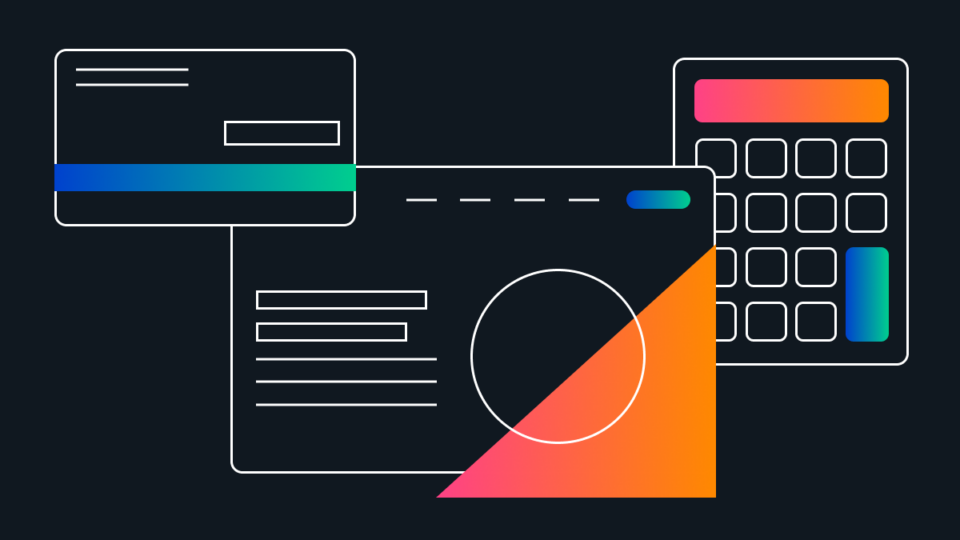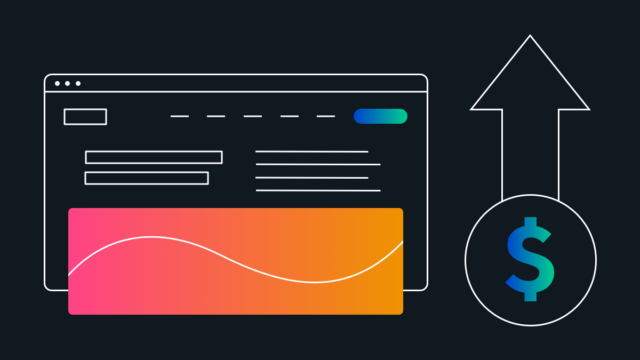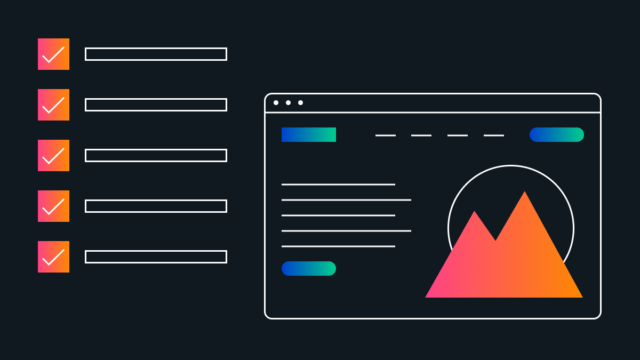How much do websites cost in 2023?

How much do websites cost in 2023? That’s a great question.
What’s your budget?
Your website is an investment. And that investment should be dictated by the desired return. An experienced agency will never tell you how much a website costs before understanding your specific business objectives and website budget.
Think of it like building a custom house: You are the homeowner; your agency is the builder. You would never approach a home builder and ask them to provide a quote without first sharing your budget and specific requirements. Otherwise, you’re likely going to be disappointed and frustrated with the outcome. They might map out six bedrooms when you only wanted three. Or propose lower-quality finishings assuming that you want the lowest price possible. Without a clear budget, requirements, and constraints, there’s a lot of guessing and assuming going on.
What matters most: time, quality, or cost?
How much a website costs depends on your priorities: time, quality, or cost. Putting more emphasis on one increases the pressure on the others.
- If a short timeline is the most important thing, you may need to pay a rush fee for the accelerated process or implement a phased rollout.
- If quality is your highest priority, your project may require a longer timeline and a bigger price tag.
- If budget is the biggest concern, you may have to cut scope to ensure quality or select a less experienced agency that produces lower-quality work.
In B2B SaaS, it’s easy to argue you need all three. The market’s moving fast — you can’t afford to go too slow. You need to generate quality leads — you need a strategic and high-performance website. And, oh yeah — your marketing budget just got cut by 20%.
We hear you. These aren’t easy decisions, but you don’t have to go it alone. Web agencies play tetris with timelines, requirements, and budgets daily. Share your specific business objectives and available budget; they’ll help you identify the best solution within the constraints. If they don’t, they’re not the right agency.
Why the price of a website is going up
It’s true. Website design and development costs are increasing. Inflation and increasing labour costs certainly play a role, but the bigger reason is rising expectations.
In 2023, you can’t simply have a website. You need a secure, compliant, accessible, lead-generating, revenue-driving, scalable website.
Accessibility standards have risen rapidly over the past few years as the world (and lawmakers) has made a collective push to make the internet more accessible to those with cognitive, visual, hearing, neurological, and mobility disabilities.
Businesses are often surprised to learn the cost of making a website that is compliant with local and national web accessibility standards. These standards are constantly evolving, so what’s compliant one year may not cut it the next. It’s important to discuss the strategy with your web agency to ensure you’re building according to the latest web accessibility standards.
Cybersecurity threats are also increasing at an alarming rate, and websites are prime targets. All businesses, but especially those that accept payments and store customer data, should prioritize website security in 2023.
To safeguard businesses and the customers they serve, governments and regulatory bodies have strengthened their data protection laws and regulations (e.g. General Data Protection Regulation in the European Union, California Consumer Privacy Act, etc.).
Beyond accessibility and security standards, business expectations are rising too. CMOs and marketing teams are under more pressure than ever to deliver measurable results. The Gartner 2023 CMO Spend and Strategy Survey reported that “75% of CMOs are facing increased pressure to ‘do more with less’ to deliver profitable growth in 2023”.
Your website is the central hub of the B2B customer journey. Ads, landing pages, content marketing, sales enablement, and social media — they all point customers to your website and ask them to give you a chance. A high-quality, high-performance website designed to meet your specific business objectives will accelerate quality lead generation, support your sales pipeline, and help you prove the value of your investment. A half-baked website will confuse users, slow conversions, and raise questions about the marketing strategy and website budget allocation.
Do yourself a favour — tell your web agency your actual budget
There’s an interesting phenomenon that happens in marketing: Salespeople and marketers don’t trust sales and marketing. Maybe it’s because we recognize the tactics and strategies others are using, or we subconsciously buy into the adage that all marketers are liars (which Seth Godin masterfully disproves in his book “All Marketers Tell Stories”).
Whatever the reason, we all tend to hold our budgets close to our chests out of fear that vendors will inflate the price to match the budget.
Let it go. Withholding or intentionally under-quoting your website budget will only work against you. Save your team time, money, and decision fatigue by sharing your actual goals and website budget with prospective agencies upfront.
6 benefits to sharing your actual website budget upfront
1. The most qualified agencies will naturally rise to the top
If you have ambitious goals, you don’t want to partner with an agency whose only competitive advantage is price. When you ask for a website quote from multiple agencies but don’t share your website budget (or at least your marketing budget) upfront, your quotes will be all over the map — and the cheap ones are going to be appealing. You could spend weeks or months interviewing cheap vendors, only to find out they can’t deliver the quality or results you need. You may have to start all over again.
Remember, there are all kinds of factors that influence cost and quality:
- Hourly rates (and currency exchange rates)
- Number of hours scoped to deliver the work
- Fixed vs variable scope
- Junior vs senior staff
- Specialists vs generalists (e.g. general graphic designer vs specialized UX designer)
- Quality (e.g. off-the-shelf WordPress templates with performance issues vs high-performance custom websites)
- Process (agencies with well-defined processes and proven methodologies may charge more because they can deliver high-quality work more efficiently and achieve better outcomes.)
- Degree of strategic input (some agencies are simply executors, but others will dive deep into your business strategy)
When you share your actual website budget with the agencies upfront, you shift the focus from price to outcomes, scope (value per dollar), quality of work, and relationship. Instead of seeing the best deal, you’ll surface the best partner, and get to the decision faster.
2. You learn what you can afford with your website budget
If a $50M company wants to rebuild its expansive website, grow organic traffic, increase quality leads, and grow revenue by 25% — but only has a shoestring budget — something’s got to give. But if the company shares the website budget upfront, the agency can provide education about what can and can’t be achieved at that budget versus a bigger investment. It’s not about whether the budget is good or bad, it’s about whether the budget supports the objectives.
We’ve had many clients come to us with a website budget far too small to achieve their objectives. But we kept the conversation going and explained why, then advised what budget would be needed to hit the goals. We made sure our main point of contact was equipped to go back to the CMO or CEO and advocate for more budget to achieve the expected revenue growth.
3. Proposed solutions are specific to your business objectives
With clear business objectives and budget transparency, web agencies are equipped to propose a solution that’s customized to your unique needs and business objectives.
If your company recently merged with or acquired another company, your website needs will differ from a company whose primary objective is moving upmarket. You may require a larger sitemap to communicate a new suite of products, extensive content migration, and a strategic URL redirect plan. These are just a few examples of scope that an agency can include in their proposal when they understand the business objectives and amount of budget they have to work with.
Redesigning or refreshing your website is a big investment. Be wary of templated agency pitches that lack consideration for your business, your context, and your goals. Look for evidence that they’ve done their homework and are passionate about getting the details right. If they aren’t listening while trying to win your business, they probably won’t listen after the deal is signed.
4. Value adds become clear
When every agency is quoting in the same price range, it’s easier to spot the additional value. Multiple agencies may offer content strategy, but one goes above and beyond and delivers more strategic value. It’s like looking at a feature comparison table and seeing who offers the most checkmarks. You aren’t looking for the lowest price of a website, you’re looking for the best value per dollar.
5. Agencies are forced to defend their pitches
Anyone can put together a strong first pitch; not everyone can defend their pitch when it’s put under the microscope. With multiple similar quotes in hand, you’re better equipped to ask agencies:
- Why should we pick you?
- Why did you quote at the high end of our budget range?
- Why did you exclude this scope when your competitors included it?
- Why did you suggest this solution instead of that?
- What do you bring to the table that others can’t?
You want an agency that can confidently back up their proposal and prove what sets them apart. You’ll spot these experts more easily when you compare apples to apples.
6. Build trust and rapport from the start
The best agency-client relationships are founded on trust. Withholding the actual website budget isn’t a great start. As a potential client, it’s in your best interest to help an agency put its best foot forward. Yes, there is a transaction involved, but you’re also investing in a strategic partnership. You’ll be looking to them to advise you on decisions that will directly impact your marketing results and business outcomes.
Trusting an agency to propose the best possible solution for a reasonable price is the first step to building a relationship based on trust and shared commitment to the project objectives.
“Marketers tasked with selecting and managing agencies must replace rigorous and elaborate agency pitch processes with a partnership-focused lifecycle approach that facilitates long-term success, streamlines assessment and selection, and reinforces trust and compatibility throughout the course of the relationship.” — Forrester Best Practice Report: Ditch the Pitch
Unfortunately, the RFP process doesn’t exactly set you up for success. The impersonal document transaction makes it difficult to assess how an agency thinks and evaluate team chemistry. And those two things can make or break a partnership.
Put prospective agency partners to the test early by talking openly about your budget. See how they show up in the conversation. Do they confidently advise on the best value per dollar? Do they advocate for the scope that’s required to achieve your objectives? Are they frank if additional budget is needed? The right agency will take the lead and make it clear that they’re operating with your best interests in mind.
Don’t look for the average cost of building a website. Look for your best solution.
It’s tempting to Google, “How much should I spend on a website?”. That search may have even led you here. But articles that guesstimate or spit out numbers using website cost calculators don’t know your business and they don’t care about your goals. A basic average might work for the mom-and-pop shop down the street, but it definitely won’t work for a scaling SaaS company.
Instead of searching for a blanket answer, prepare to select your website agency partner by identifying:
- Your must-accomplish business objectives
- Your must-have and nice-to-have website wish list
- Your actual website budget range
If you’re struggling to nail down the details, don’t sweat. Share what you can with the web agencies you’re considering. It’s their job to help you take it from there and arrive at the best possible solution — for your business and your budget.



